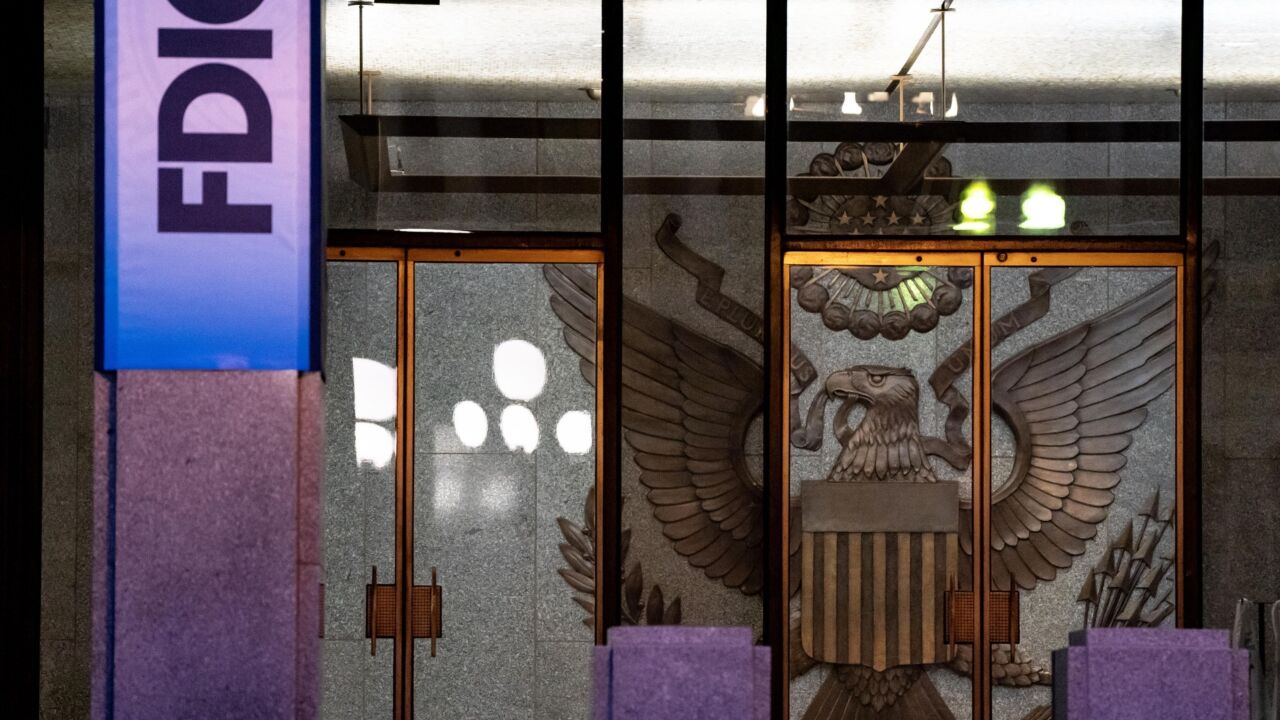-
After nearly 10 years of banking my business, BofA debanked it because of overzealous anti-money-laundering enforcement. The Trump administration must bring back common sense to Bank Secrecy Act compliance.
February 10 K.H. Thomas Associates
K.H. Thomas Associates -
Once a helpful tool for law enforcement, CTRs have become next to useless in the fight against money laundering. It's time to retire them in favor of more modern and effective measures.
January 27
-
Toronto-Dominion Bank is moving up the start date for its new chief executive officer, Raymond Chun, by two months and has reduced executives' pay.
January 17 -
The investment banking giant has been the subject of regulatory probes regarding the way it vets prospective clients. So far, that's not driving away potential clients, executives say.
January 16 -
The Biden administration is asking the Supreme Court to overturn a lower court injunction against the Corporate Transparency Act, which requires businesses to disclose their beneficial owners. The outcome has significant implications for banks' AML compliance burdens.
January 16 -
Since the pandemic, financial scams have surged dramatically. The solutions to rampant fraud are clear; what's missing is the urgency.
January 9
-
-
Vulnerabilities related to environmental, social and governance issues have become a serious threat vector when it comes to money laundering. Banks must recognize the danger and adapt their systems accordingly.
January 2
-
At TD Bank and some other financial institutions accused of aiding and abetting money laundering, AML and branch employees have colluded and even joked about it in instant messages. Technology is part of the answer to detecting and preventing this.
December 31 -
These banks are expected to draw regulatory scrutiny in the coming year.
December 30 -
The tiny community bank handled hundreds of millions of bulk cash shipments from Mexico without red-flagging any of them, the agency said. The bank has filed a motion to dismiss.
December 27 -
Banks such as TD, Wells Fargo and Bank of America drew attention this year for money-laundering issues. That's one of several top regulatory news items in 2024.
December 25 -
TD Bank Group's money-laundering-related crimes have sparked questions of how banks should be penalized for moving dirty money. CFPB Director Rohit Chopra said the FDIC should do more.
December 19 -
Members of the Federal Deposit Insurance Corp. board of directors Tuesday debated Consumer Financial Protection Bureau Director Rohit Chopra's proposal limiting capital distributions system-wide during times of stress, as well as penalties for institutions caught engaging in money laundering.
December 17 -
After the Toronto-based bank faced record penalties in the U.S., it made new disclosures about its anti-money-laundering compliance obligations in Canada, where critics say regulators have been too lax.
December 12 -
Leonardo Ayala, who was a retail banker at a TD branch in Florida, faces criminal charges in connection with money-laundering activities.
December 11 -
The Toronto-based bank suspended its medium-term growth targets and announced a full-scale review of its strategies following historic anti-money-laundering failures.
December 5 -
A federal judge in Texas has blocked the enforcement of the Corporate Transparency Act, a key U.S. anti-money-laundering law that would require companies to report ownership details by January.
December 4 -
Canada's banking regulator is beefing up its rules on corporate culture, saying that it expects executives and boards to be accountable.
November 22 -
The Federal Reserve issued an enforcement action against the former head of Heartland Tri-State Bank, who embezzled millions of dollars after falling victim to a crypto scam.
November 21













